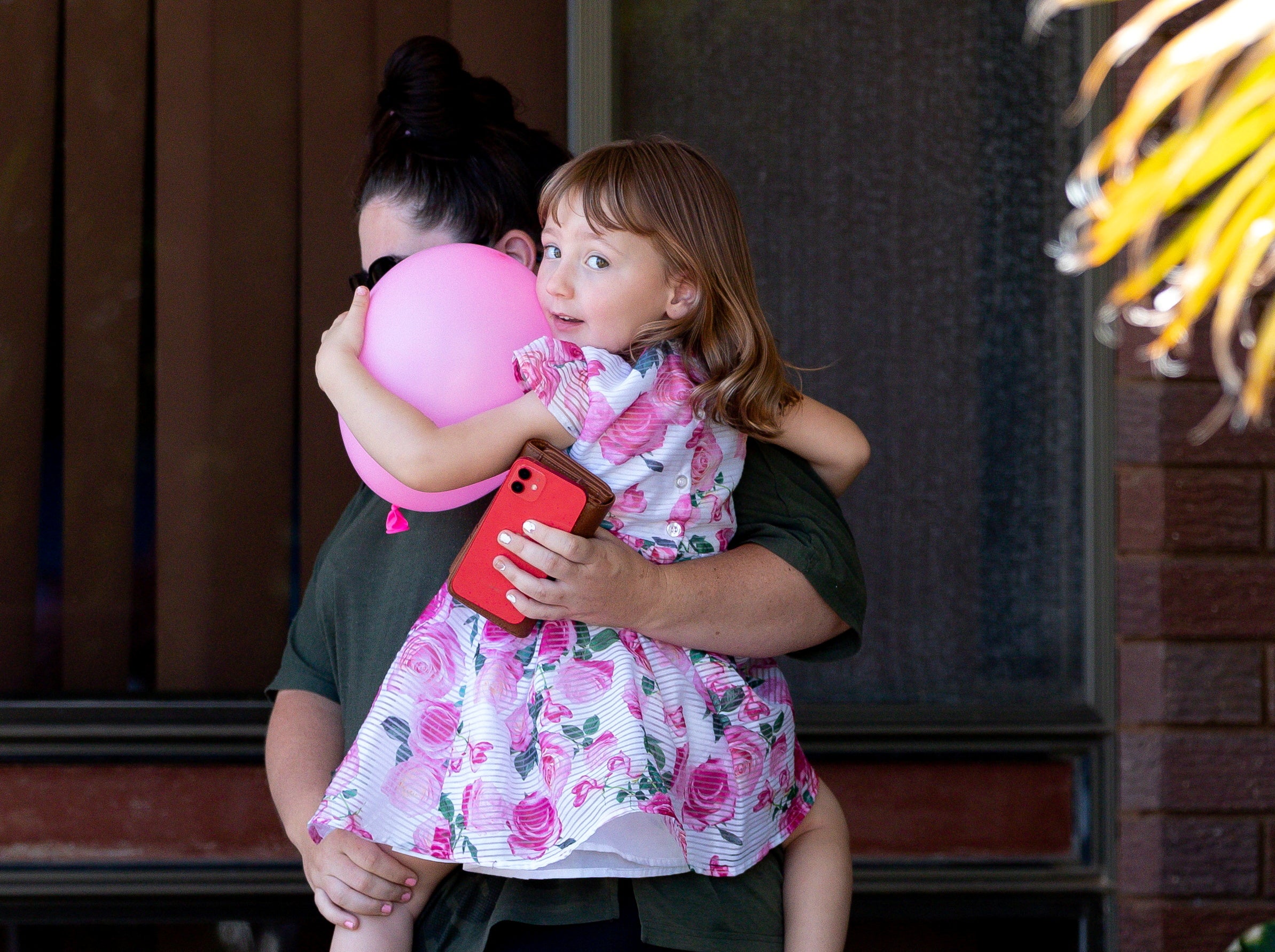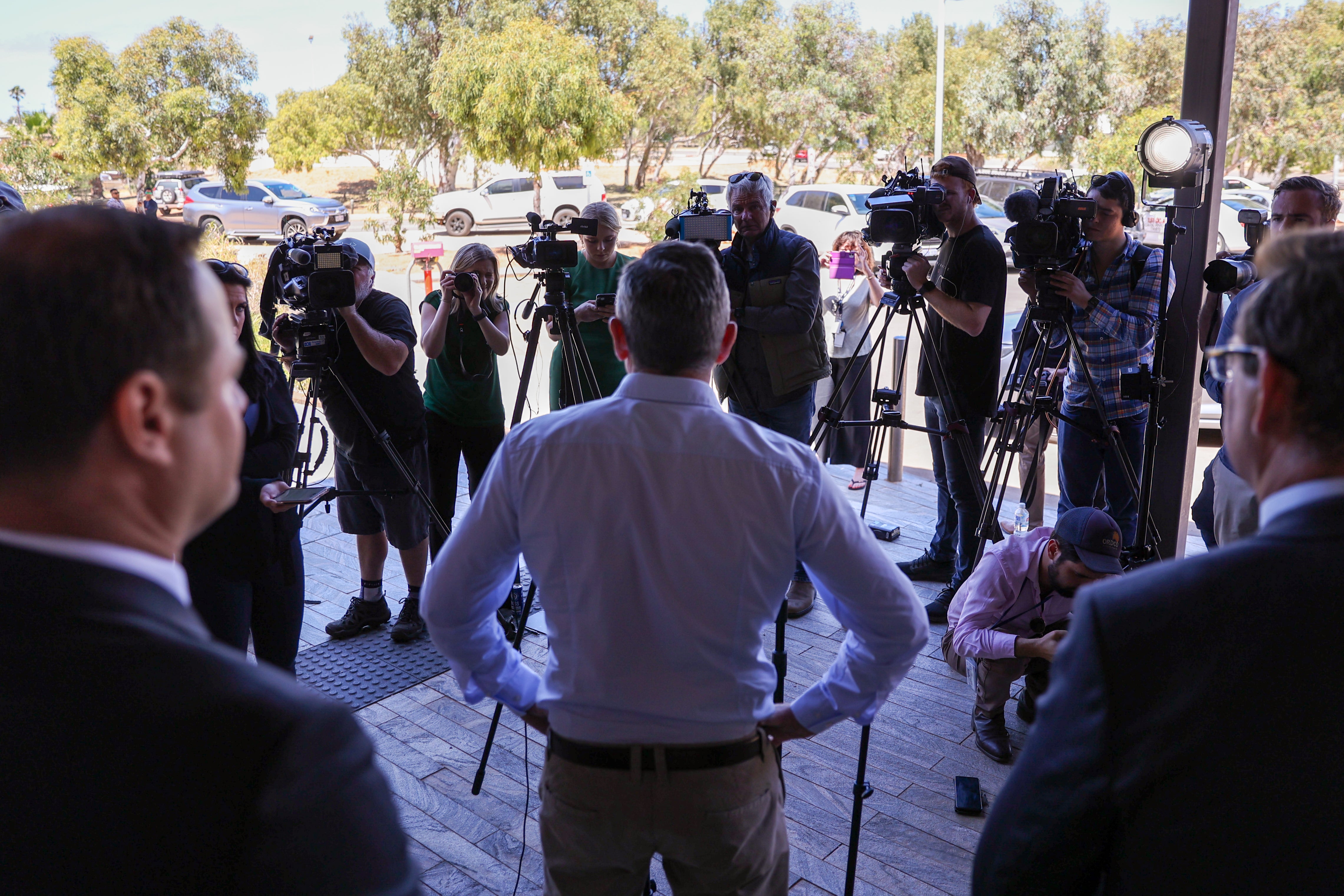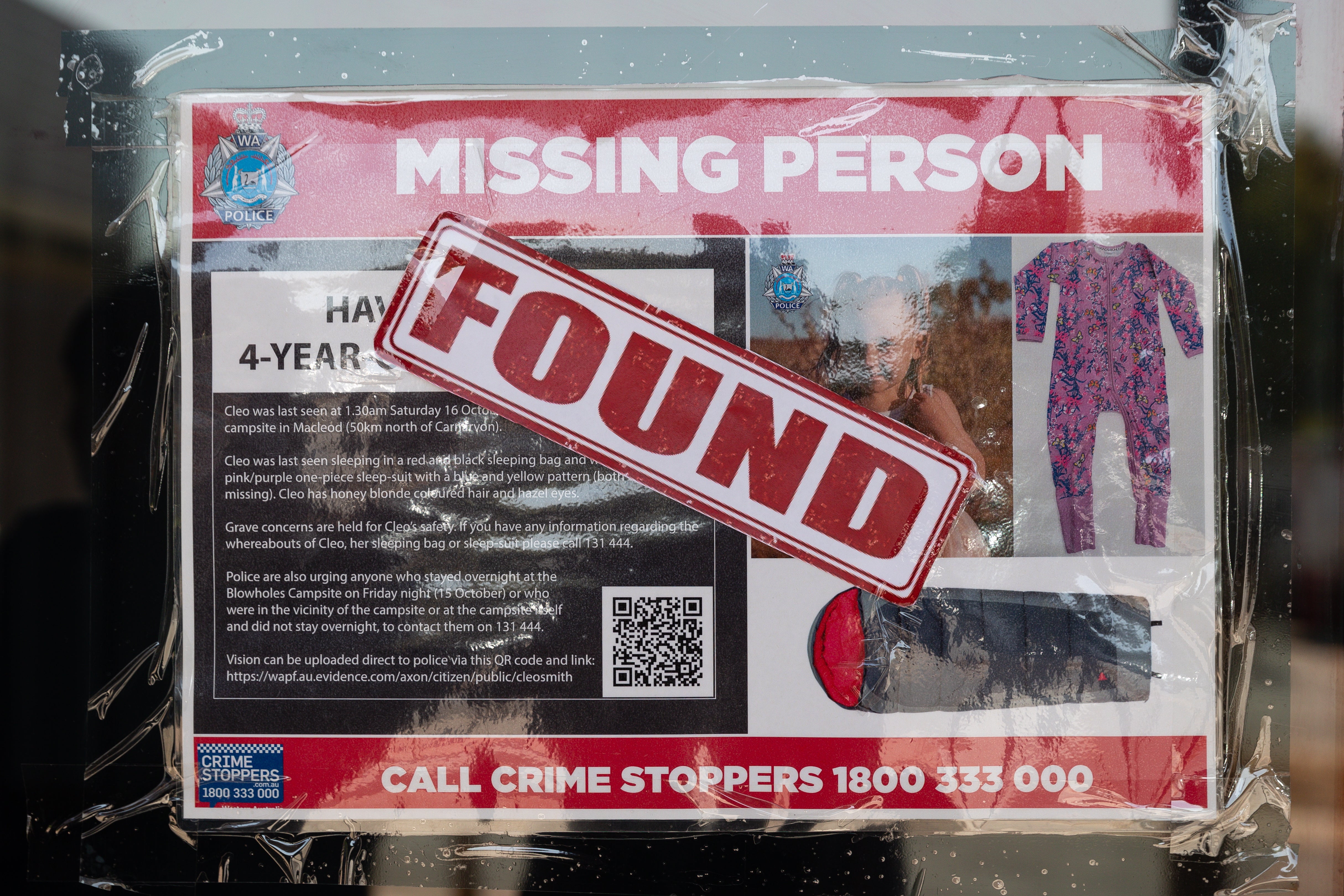‘My name is Cleo’: How disappearance of missing girl dominated Australian media coverage
The disappearance – then recapture – of Cleo Smith has been frantically covered in Australia and beyond, reports Steve Evans in Canberra

The coverage of the disappearance of little Cleo Smith in Western Australia and her joyful reunion with her parents has been frantic. It became a national cause, pushing the climate summit in Glasgow and Australia’s contretemps with France off the front pages.
Everybody, it seemed, wanted to get involved in an outpouring of concern, from psychics who “knew” through their “spiritual gifts” where the four-year-old was, through to politicians.
You have to feel for the Premier of Western Australia, though. There Mark McGowan was, bearing teddies for the newly-freed four-year-old – except that he trod on her doll and broke it.
But Mr McGowan is politically nimble if physically clumsy. He made the best of it. “I owe her a pair of shoes. But I gave her the two little police teddies which we named Cameron and Rod,” he told reporters.
Mr McGowan is phenomenally successful. There is something of the Tony Blair about him, with his clean, good looks and popular touch. The party he leads won 53 of the 59 seats in the state’s parliament in the elections in March, a result any leader of the left can only dream of achieving.

Despite treading on the poor girl’s Barbie, Mr McCowan knows a cause when he sees it – and the genuine joy after 18 days of fearing the worst was the best of causes.
Cleo disappeared from a tent at the Blowholes campsite 900 kilometres up the coast from Perth on 16 October. She was finally found nearby among the dolls a local stranger gathered in a collection at his home.
In court, 36-year-old Terence Darrell Kelly acknowledged his name and expressed anger at the presence of reporters. He was not obliged to enter a plea to the charge of abduction.
It was a culmination of an intense investigation that was followed around the world. The precedent in Australia would be the disappearance of Lindy Chamberlain’s nine-week-old daughter 40 years ago. It transpired that a dingo took the baby from the tent.
Cleo, by contrast, was found alive and apparently well, though she will no doubt be talked to quietly and carefully to find out what happened.
The publicity during the 18 days became immense in Australia and beyond.
Newspapers of all shapes and sizes in Britain and the United States went big on the story.
The rescue of the girl was the most-read story on the BBC’s global website. The New York Times (with its particular use of capital letters) announced: “‘My Name Is Cleo’: Girl, 4, Is Found 18 Days After Vanishing From Campsite”.
The story didn’t just captivate the English-speaking world. “Endlich Frei! Cleo (4) in den Armen Ihrer Retter,” said Germany’s biggest tabloid, Bild. “‘My name is Cleo’: Four-year-old Australian girl found after 18-day search”, said The Times of India.
Cleo was the perfect subject, with her engaging smile, blonde hair and fair skin. If there was a picture of innocence, she was that picture. By all accounts, she is adorable, and newspapers know how that kind of image appeals to readers.

She was perfect, too, for the social media age, where once private moments now become public. At the moment of rescue, the microphone and camera were turned on: “’ What’s your name, sweetheart?’ ‘My name is Cleo’” jumped out of smartphone screens across the planet. “My name is Cleo” became the headline below countless mastheads.
Australian television channels cleared their schedules. Channel Seven ran a one-hour primetime special. Not to be trumped, Nine pushed out even Love Island with its special, Finding Cleo. It paid off. On one estimate, an extra 400,000 viewers watched across the networks.
Psychics were found. “Missing person experts”. Psychiatrists.
But what really sustained the coverage was the sheer heartbreaking drama of a missing child and the obvious anguish any parent would recognise.
For British audiences, there was a great resonance with the tragedy of Madeleine McCann, who disappeared from her bed in a holiday apartment in Portugal in 2007. In that case, there was a relentless tsunami of ultimately false speculation about what had happened, stretching over more than a decade, which must have been utterly painful for the parents.
No theory was left unturned until police identified a German paedophile two years ago. He was free at the time of the abduction but in prison by 2020 for a different crime. He remains the prime suspect.
The McCann case was described as “the most heavily reported missing person case in modern history”, which remains so because of the happy ending to the Cleo case.
Cleo’s smile means there will not be years of speculation. Much will emerge at the trial, either from the accused himself or from the police evidence.
The smile and “My name is Cleo” is enough.
Join our commenting forum
Join thought-provoking conversations, follow other Independent readers and see their replies
Comments
Bookmark popover
Removed from bookmarks